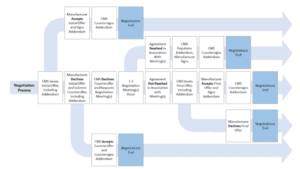How to close a bank account

How many bank accounts do you currently have? While some of us only have one checking account and one savings account, many of us have opened multiple accounts at different banks over the years — and some of us may be wondering how to close some of those bank accounts and consolidate our finances. You may also be wondering how to switch your money from a standard savings account to a high yield savings account, or how to get your money out of a checking account that charges monthly fees.
While closing a bank account is relatively easy, it’s not the right choice for everybody. That’s why we asked James Allen, CPA, Certified Financial Planner® and the founder of Billpin.com, to talk us through the pros and cons of closing a bank account, as well as the steps you might need to take before you contact your bank.
“Closing a bank account is a financial decision that should not be taken lightly,” says Allen. If you’re thinking about closing a bank account, here’s what you need to know.
What are the benefits of closing a bank account?
There are many benefits to closing a bank account. Let’s say you’re moving money from a traditional savings account to a money market account or high yield savings account that offers higher interest rates. Once all of your transactions have cleared, closing the account you are no longer using could be a smart move.
Likewise, if your checking or savings account comes with minimum balance requirements or monthly maintenance fees, switching to a new financial institution and closing your old accounts could potentially save you a lot of money over time.
“Closing a bank account can help you streamline your finances, especially if you have multiple accounts that are difficult to manage,” says Allen. “It can also be a step towards escaping high fees or poor customer service from your current bank.”
Some people close old bank accounts after moving to a new town or city in order to take advantage of a more convenient local bank. While most of us do much of our banking online, getting to know your local bankers could prove beneficial when you are applying for a mortgage or turning your side hustle into a small business. A local bank is also a great place to notarize your will.
Are there any negative consequences to closing a bank account?
While many people will be able to close an old bank account without any negative consequences, there are a few situations in which closing a bank account hurts your credit, affecting your credit report.
“If your account is overdrawn and you close it without resolving the negative balance, it could potentially affect your credit score,” Allen explains. “The bank may send the debt to a collection agency, which can notify credit bureaus and result in a lower credit score. This negative mark can stay on your report for up to seven years.”
Shutting down a bank account without resolving any outstanding financial issues could also affect your ability to open bank accounts in the future.
“Closing a bank account that’s not in good standing can show up in your ChexSystems report, a record used by banks to decide whether to approve bank account applications,” Allen told us. “This information stays on your report for five years.”
How do you close a bank account?
The process of closing a bank account is relatively simple. That said, it might be more time-consuming than you were expecting.
Some banks may require you to call or visit a customer service representative in order to begin the process of closing your account, and other banks may require you to send a written letter confirming your intent to close the account. Your bank may allow you to complete the process online — but even if you are able to close your bank account through an online portal, there are still a few steps you’ll need to take before beginning the process.
“In my experience, ensuring a smooth transition is crucial if you plan to close your bank account,” says Allen. “For instance, if you’re planning to open a new bank account elsewhere, it’s wise to open the new account before closing the old one. This way, you can reroute any direct deposits and automated bill payments to the new account, ensuring you don’t miss any payments.”
Once you’ve opened your new bank account and confirmed that the new account is both receiving deposits and paying bills, you can continue the process of transferring money (the outstanding balances) from your old bank account into your new one. At that point, you’ll be ready to follow your bank’s instructions and complete the account closure process.
“Think of it like moving houses,” Allen advises.
“You wouldn’t want to move out before your new place is ready, right? The same principle applies to bank accounts. You need to set up your new financial home before leaving the old one. This allows you to avoid any potential hiccups that could negatively impact your financial health.”





